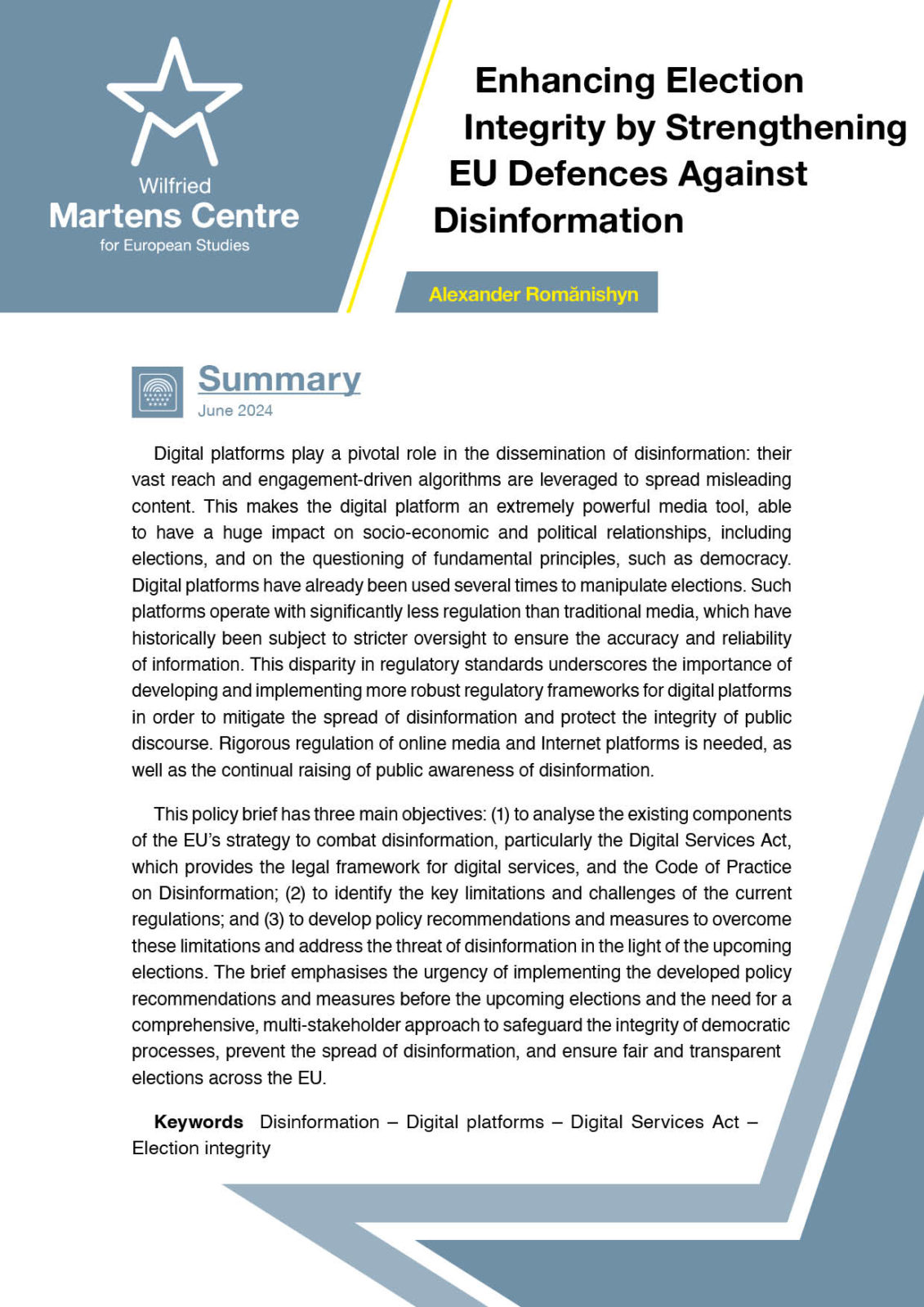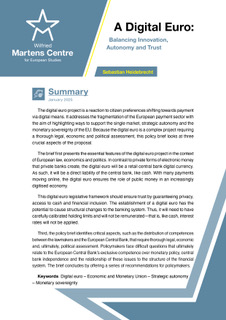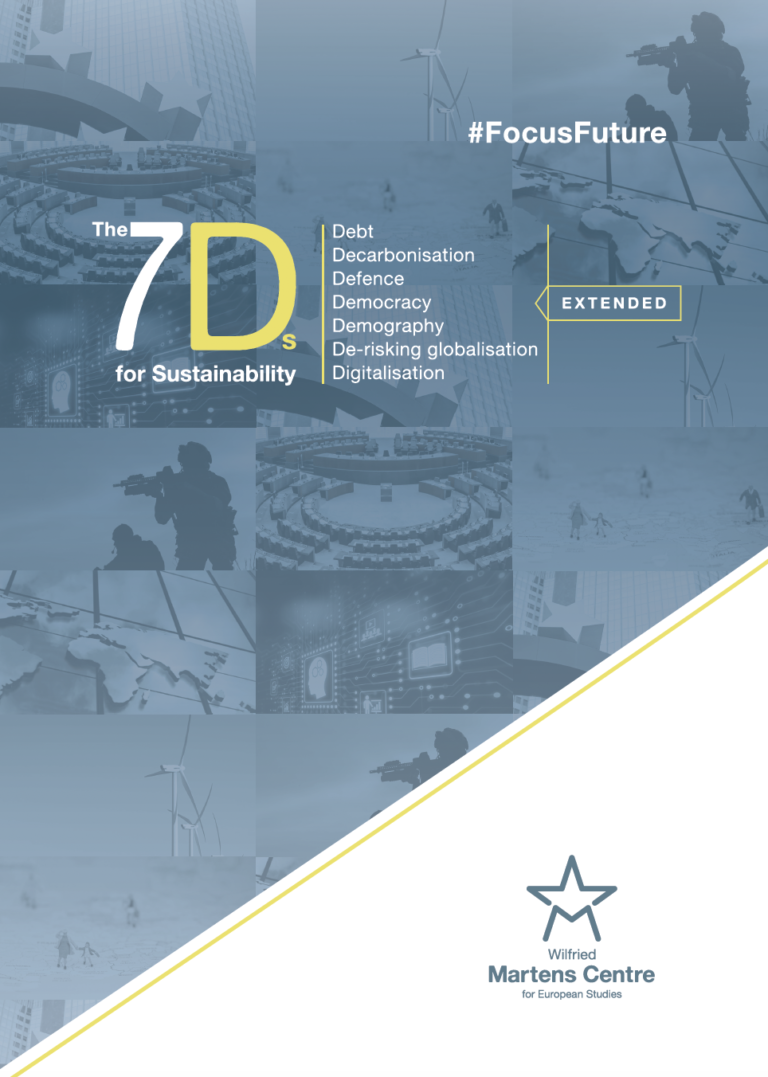Enhancing Election Integrity by Strengthening EU Defences Against Disinformation
26 June 2024
Digital platforms play a pivotal role in the dissemination of disinformation: their vast reach and engagement-driven algorithms are leveraged to spread misleading content. This makes the digital platform an extremely powerful media tool, able to have a huge impact on socio-economic and political relationships, including elections, and on the questioning of fundamental principles, such as democracy. Digital platforms have already been used several times to manipulate elections. Such platforms operate with significantly less regulation than traditional media, which have historically been subject to stricter oversight to ensure the accuracy and reliability of information. This disparity in regulatory standards underscores the importance of developing and implementing more robust regulatory frameworks for digital platforms in order to mitigate the spread of disinformation and protect the integrity of public discourse. Rigorous regulation of online media and Internet platforms is needed, as well as the continual raising of public awareness of disinformation.
This policy brief has three main objectives: (1) to analyse the existing components of the EU’s strategy to combat disinformation, particularly the Digital Services Act, which provides the legal framework for digital services, and the Code of Practice on Disinformation; (2) to identify the key limitations and challenges of the current regulations; and (3) to develop policy recommendations and measures to overcome these limitations and address the threat of disinformation in upcoming elections. The brief emphasises the urgency of implementing the developed policy recommendations and measures before upcoming elections and the need for a comprehensive, multi-stakeholder approach to safeguard the integrity of democratic processes, prevent the spread of disinformation, and ensure fair and transparent elections across the EU.
ENJOYING THIS CONTENT






